Intercontinental links put on the fast track
Updated: 2015-11-27 08:30
(China Daily)
|
||||||||
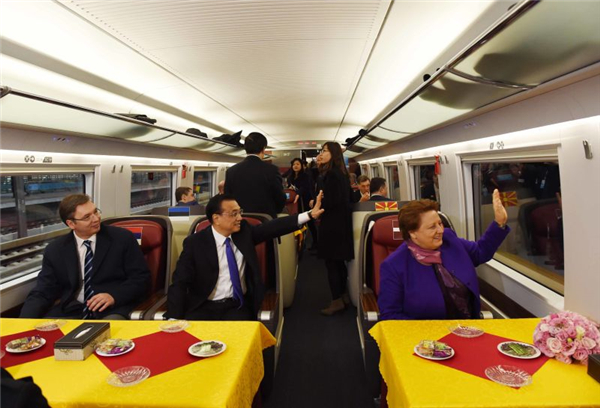 |
|
Premier Li Keqiang (C) sits with Serbian Prime Minister Aleksandar Vucic (L) and Latvian Prime Minister Laimdota Straujuma (R) on a CRH (China Railway High-speed) Harmony bullet train to Shanghai from Suzhou Railway Station after the Fourth Leaders' Meeting of China and Central and Eastern European countries, Nov 25, 2015. [Photo/Xinhua] |
One of China's high-speed trains picked up a group of high-profile international passengers on Wednesday, as China once again displayed its resolve to share its development with the rest of the world.
The passengers were leaders of Central and Eastern European countries who joined Premier Li Keqiang on a 25-minute ride from Suzhou, East China's Jiangsu province, to Shanghai.
Li and the leaders of the 16 CEE countries have been charting the future course for relations during their discussions in Suzhou this week, paving the way for a model of cooperation that features all-win outcomes.
As President Xi Jinping pointed out in his meeting with the visiting leaders on Thursday in Beijing, China-CEE cooperation can be fully integrated into the Belt and Road Initiative - proposed by China to better connect the country with other parts of Asia, Europe and Africa by land and by sea - and thus promote common development and prosperity.
Xi said the 16+1 framework that shores up reciprocity, win-win outcomes, and inclusiveness can be fully incorporated into the comprehensive strategic partnership between China and Europe as well.
The two sides have vowed, among many other things, to improve their connectivity, and China's updated high-speed rail technology can obviously play a key role in this.
With the world's longest and most heavily used high-speed railway network of nearly 10,000 kilometers, China is now looking to offer its best services and time-tested practice to countries around the world with its leading railway technology.
Given that the CEE countries desperately need to upgrade their infrastructure network, China is willing to impart the rich experiences it has accumulated in this area. With existing rail and air links connecting China and the CEE countries and the planned China-Europe land-sea express passage, connectivity within the 16+1 framework will be further strengthened to facilitate the flows of both goods and people.
Since the first 16+1 leaders' meeting in Warsaw in 2012, China and the CEE countries have already made great strides in their reciprocal cooperation. Considering that China's trade with CEE countries only account for about one-tenth of the overall trade between China and Europe, China and the CEE countries have great potential to contribute more to China-Europe ties and the world economic development through win-win and all-around cooperation.
- Locals have tradition of drying foods during harvest season
- Beijing-Tianjin-Hebei govts to cooperate on emissions control
- Web promotion of prostitution to be targeted
- Two more spells of smog predicted to sweep North China
- Glass bridge in grand canyon of Zhangjiajie under construction
- Road rage cases pose huge safety challenge

 Can Chinese ‘white lightning’ make it in US?
Can Chinese ‘white lightning’ make it in US?
 Gunmen go on a killing spree in Southern California
Gunmen go on a killing spree in Southern California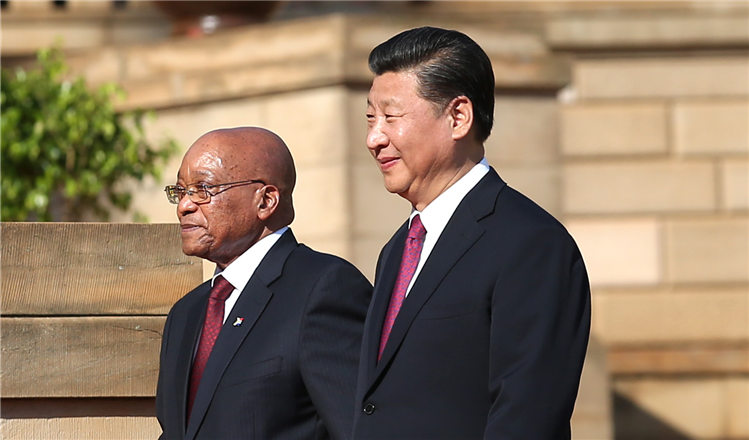
 Chinese, South African presidents hold talks to cement partnership
Chinese, South African presidents hold talks to cement partnership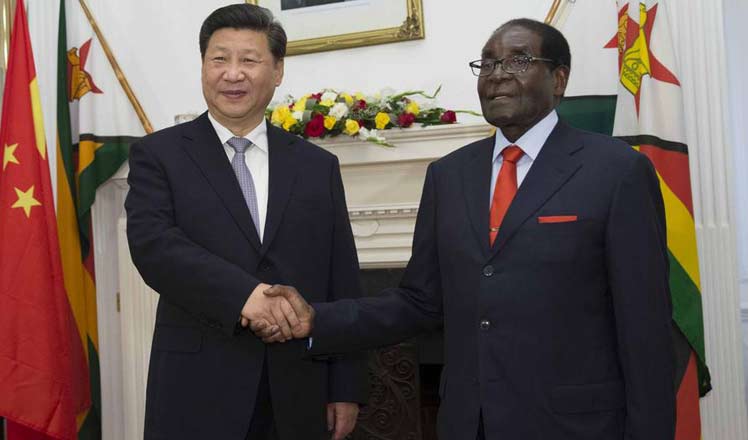
 China, Zimbabwe agree to boost cooperation
China, Zimbabwe agree to boost cooperation
 First lady visits Africa's 'new window' on China
First lady visits Africa's 'new window' on China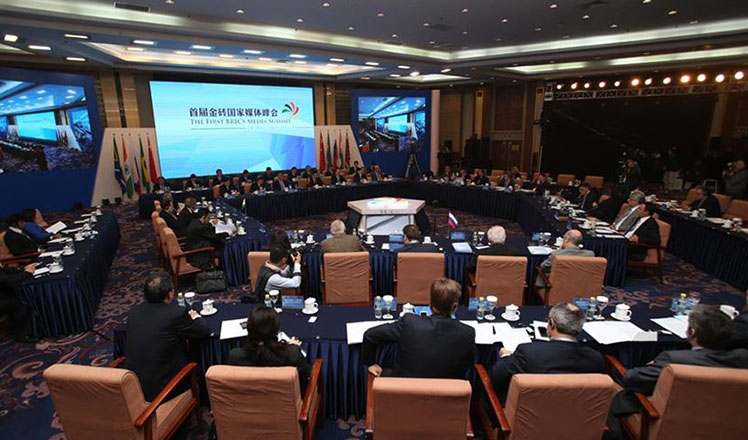
 BRICS media leaders to secure louder global voice
BRICS media leaders to secure louder global voice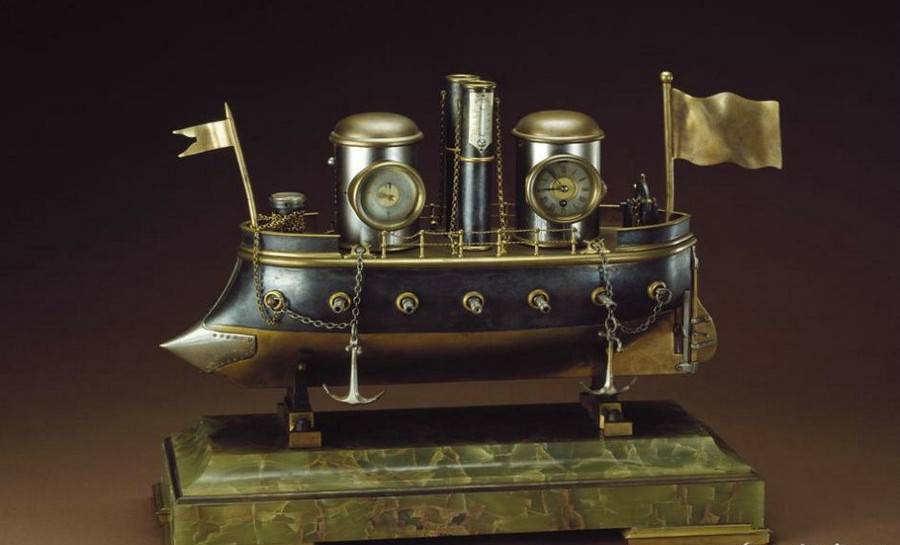
 Western science in the eyes of Chinese emperors
Western science in the eyes of Chinese emperors
 Top 10 smartphone vendors with highest shipments in Q3 2015
Top 10 smartphone vendors with highest shipments in Q3 2015
Most Viewed
Editor's Picks

|

|

|

|

|

|
Today's Top News
Shooting rampage at US social services agency leaves 14 dead
Chinese bargain hunters are changing the retail game
Chinese president arrives in Turkey for G20 summit
Islamic State claims responsibility for Paris attacks
Obama, Netanyahu at White House seek to mend US-Israel ties
China, not Canada, is top US trade partner
Tu first Chinese to win Nobel Prize in Medicine
Huntsman says Sino-US relationship needs common goals
US Weekly

|

|








